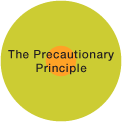A new report from the European Parliament’s Directorate-General for Internal Policies has come out highlighting the scientific research showing negative impacts of neonicotinoid pesticides on bees throughout Europe (attached). Emma Hockridge, Soil Association Head of Policy Said: “The new report states that ‘Neonicotinoids show high acute toxicity to honeybees’ and ‘Chronic exposure of honeybees to sub-lethal doses of neonicotinoids can also result in serious effects, which include a wide range of behavioural disturbances in bees, such as problems with flying and navigation, impaired memory and learning, reduced foraging ability, as well as reduction in breeding success and disease resistance. In order to protect honey bees, bumble bees and other wild pollinators it is vital that the UK Government follows the lead of other European countries and bans the use of neonicotinoid pesticides before March 2013, which is the beginning of next planting season for oil seed rape and maize. The Government must act quickly: we cannot afford yet another year of declining numbers of pollinators.”
Key findings in the report:
- Although bee declines can be attributed to multifarious causes, the use of
neonicotinoids is increasingly held responsible for recent honeybee losses.
- Neonicotinoids show high acute toxicity to honeybees.
- Chronical exposure of honeybees to sub-lethal doses of neonicotinoids can also result in serious effects, which include a wide range of behavioural disturbances in bees, such as problems with flying and navigation, impaired memory and learning, reduced foraging ability, as well as reduction in breeding success and disease resistance.
- Recent scientific findings are urging to reassess the bee safety of approved uses of neonicotinoid insecticides at European level. A current review, carried out by the European Food Safety Authority EFSA (on behalf of the European Commission) will give new insights into this issue.
- As long as there are uncertainties concerning the effects of neonicotinoids on honeybees, the precautionary principle in accordance with the Regulation (EC) No 1107/2009 should be applied when using neonicotinoids.
Sources:
European Parliament Directorate-General for Internal Policies. Existing Scientific Evidence of the Effects of Neonicotinoid Pesticides on Bees, December 2012 (attached). This document was requested by the European Parliament's Committee on Environment, Public Health and Food Safety.
The Soil Association
http://www.soilassociation.org/news/newsstory/articleid/4766/new-europe…

- Log in to post comments
